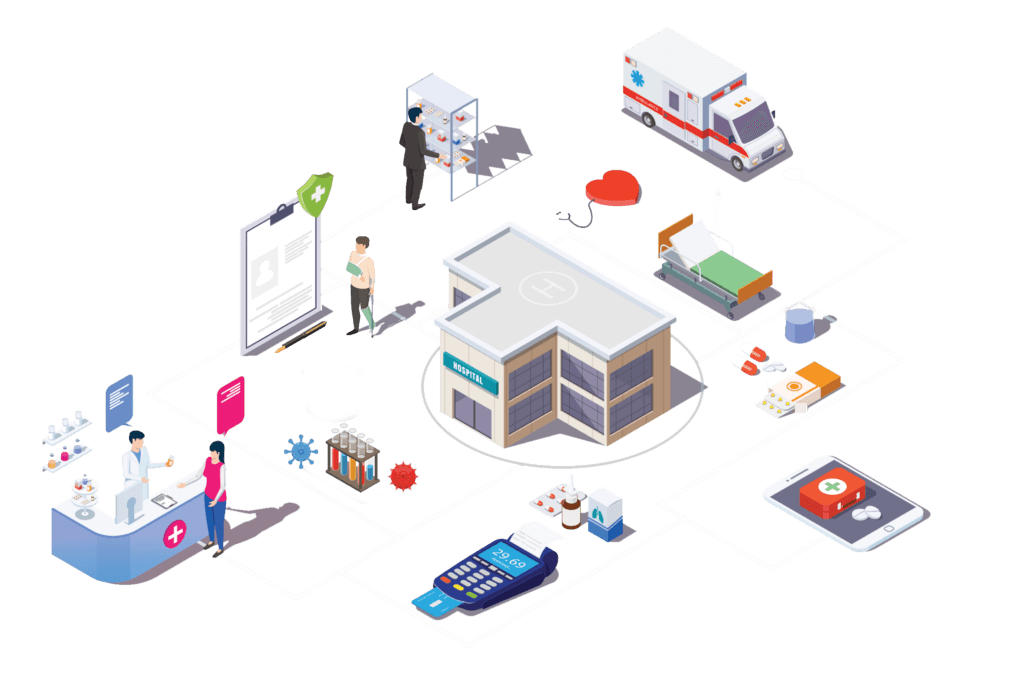And How Technology Removes these Barriers
The demand for efficient, reliable logistics is greater than ever. Patients, providers, and healthcare facilities depend on precise, timely deliveries—whether it’s urgent lab samples, pharmaceuticals, or medical supplies. However, achieving this level of service is challenging in today’s fragmented medical supply chain. For healthcare logistics providers, the complexity of navigating these obstacles can often lead to inefficiencies and delays, impacting patient care and operational efficiency.
In this article, we’ll explore the specific barriers healthcare logistics providers face and how a streamlined logistics solution like CXT Software can help tackle these challenges.

Fragmentation in the medical supply chain often occurs due to the intricate nature of healthcare logistics. Unlike other industries, healthcare logistics deals with a unique set of variables: specialized handling requirements, strict regulatory compliance, urgent delivery windows, and often unpredictable demand. Here are some of the major obstacles faced:
A lack of coordinated communication between facilities, transporters, and logistics providers can lead to critical delays. Whether delivering to clinics, labs, pharmacies, or directly to patients, each stakeholder relies on accurate, real-time information. Gaps in communication can result in missed deliveries or mishandling of items, compromising the integrity of sensitive shipments like medications or specimens.
Healthcare logistics providers operate within stringent regulatory frameworks, such as HIPAA, which mandates strict handling of patient information, or the Drug Supply Chain Security Act (DSCSA) for pharmaceutical distribution. Adhering to these regulations is critical but can slow down processes if the technology isn’t in place to automate and monitor compliance.
Unlike standard goods, many healthcare items require special conditions, such as temperature-controlled environments or sensitive handling. Without precise visibility and monitoring throughout the journey, there's an increased risk of compromising the products’ effectiveness, especially for time-sensitive materials like blood samples, vaccines, or organ transplants.
The healthcare industry often operates with little margin for error. Last-minute or emergency requests are common, and providers must be prepared to scale their logistics operations accordingly. However, a fragmented supply chain can make it difficult to respond swiftly to these demands, causing disruptions that impact patient care.
Effective healthcare logistics relies on real-time visibility at every stage of the delivery process. However, many providers still use outdated systems or lack integration across various touchpoints, making it difficult to track shipments, anticipate issues, and respond proactively. This lack of visibility can lead to delayed or lost shipments, ultimately affecting patient outcomes.
Fragmentation in the medical supply chain often occurs due to the intricate nature of healthcare logistics. Unlike other industries, healthcare logistics deals with a unique set of variables: specialized handling requirements, strict regulatory compliance, urgent delivery windows, and often unpredictable demand. Here are some of the major obstacles faced:
Investing in a logistics solution that offers centralized communication capabilities can reduce information silos and ensure each stakeholder is updated in real-time. CXT Software, for example, offers tools that allow all parties to stay informed, reducing the risk of miscommunication and ensuring shipments are on track.
Automated systems can simplify regulatory adherence, ensuring that shipments meet all necessary guidelines without creating delays. Using CXT Software's stringent chain of custody documentation, providers can focus on service while meeting all required standards, such as HIPAA or DSCSA compliance.
To protect sensitive healthcare products, look for solutions that offer temperature documentation, chain of custody tracking, and real-time status updates. CXT Software’s platform is built to handle these needs, providing the visibility necessary to ensure that products arrive in the right condition and on time.
Scalable software solutions like can adapt to fluctuating demands, allowing providers to meet increased service needs without disruptions. By employing flexible routing and scheduling tools, providers can dynamically adjust to meet patient and facility demands, improving overall reliability.
A fragmented supply chain limits visibility. By choosing a logistics management platform that integrates with existing healthcare systems, providers can gain a clearer view of shipments from origin to delivery. With CXT Software’s platform, data integration offers a comprehensive view, allowing for predictive insights and the ability to tackle potential delays before they impact service.
Addressing fragmentation in healthcare logistics isn’t just about adopting new technology—it’s about aligning every part of the supply chain to work cohesively. With our platform, healthcare providers can unify their operations, manage complex compliance requirements, and build a more resilient, responsive logistics network.
In an industry where time is of the essence, every improvement in logistics translates to better patient care, increased trust, and enhanced operational efficiency. Overcoming a fragmented supply chain starts with the right partner, and with CXT Software, healthcare providers can rely on a platform designed specifically for the challenges of healthcare logistics.

Let’s work together to build a stronger, more connected healthcare supply chain.
Chat with our team about your medical logistics needs.
Ready to boost efficiency, cut costs, and simplify your day-to-day?
Pick a time that works for you, and let’s chat about your business goals.



Thank you for opting in.